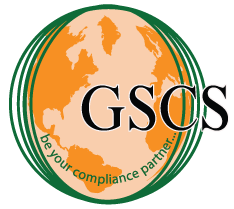.webp)
Understanding the Global Recycled Standard (GRS) Certification
Introduction: The Global Recycle Standard, or GRS, is an international standard used to set voluntary requirements for third-party certification in various areas such as Chain of Custody, Recycled Content, Social and Environmental practices, and even Chemical Restrictions. As the GRS aims to trace and track recycled materials within the finished product, GSCS, an independent, third-party certification body that undertakes individual, yearly audits, is responsible for GRS Certification.
-infographi-2.png)
What is the Global Recycled Standard (GRS)?
The Global Recycled Standard (GRS) is an international certification that checks recycled products for environmental and social requirements compliance. The use of GRS ensures and controls the sustainable aspect of the recycling system wherever it is integrated into the supply chain and the manufacturing of the products.
Key Aspects of the GRS:
✔️ Recycled Content
✔️ Environmental Impact
✔️ Social Criteria
✔️ Chemical Safety
✔️ Transparency and Traceability
Global Recycled Standard Audit Process:
- Application in GSCS Portal
- Acceptance of GSCS quotation and scheme rules
- Scheduling an audit with good preparation
- On-site audit- GSCS will send an auditor to conduct an audit against the requirements of the standard
- Certification- Audit results will be reviewed to make a final certification decision
- Transaction certificate & Claims approval- Certified entities can apply for transaction certificate and claims approval for their certified products
Why is GRS Certification Important?
GRS certification offers immense value across multiple dimensions:
GRS Certification For Businesses
✔️ Transparency: A GRS certificate proves that a business is genuinely trying to achieve sustainability by ensuring manufactured products have verified recycled material content.
✔️ Market Advantage: Environmental consideration is a huge factor for businesses and stakeholders; thus, GRS-certified companies have a better chance at the market.
For Consumers
✔️ Support Authenticity: GRS helps consumers find products made from recycled items, ensuring they want to make green purchases.
✔️ Sustainability Encouragement: Consumers can practice sustainable choices by purchasing GRS-certified products.
For the Environment
✔️ Reduce Resource Usage: Employing recycled materials minimizes the need for new resources, saving energy and reducing carbon emissions from creating new materials.
✔️ Promote GRS’s Sustainable Production Model: GRS certification enables a production model that reduces non-renewable material use and encourages material recycling.
GRS Certification Process:
Application ➜ Documentation ➜ Audits and Inspections ➜ Certification Decision
Why Choose GSCS International for GRS Certification?
Choosing the right certification body is crucial for a seamless experience. Here’s why GSCS International Ltd. is an excellent choice:
Software Portal: The entire application, reporting, and certification process of GSCS is facilitated through a custom-designed software portal.
Flexibility and Responsiveness: GSCS International is mid-sized, so we are more flexible in allowing them to balance conflicting and rigid scheduling and reporting constraints queries.
Expertise and Resources: Energy, Environmental, Social, and Product Certification audits are just a few of the many audits conducted by the specialists at GSCS.
Comprehensive Solutions: GSCS offers a single point of contact for multiple certification schemes to enable clients to meet different sustainability requirements.
Conclusion:
The Global Recycled Standard (GRS) is instrumental in boosting interest in sustainable activities and achieving the requisite level of transparency regarding the use of recycled material. On one hand, it presents a chance for businesses to show commitment to the environment and position themselves in a competitive situation. On the other hand, it makes it easier for consumers to choose eco-friendly products. GRS certification helps develop a circular economy that greatly mitigates environmental harm while deepening global sustainability efforts.
If your organization is now willing to take a step towards GRS certification, partnering with GSCS International Ltd makes much sense to support smooth and streamlined certification. Let us join hands to make and keep the future more accountable and sustainable.
If your primary focus is only on verifying recycled material content without additional environmental or social criteria, the Recycled Claim Standard (RCS) may be a suitable alternative.
FAQ:
Global recycling standard (GRS) Textile Exchange's GRS verifies recycled content and sustainable supply chains, ensuring responsible chemical usage and fair labor, and establishing confidence globally in eco-friendly products.
Recycled Claim Standard (RCS): This certification confirms recycled content in products, focusing only on traceability from source to final product. Managed by Textile Exchange, it suits organizations verifying recycled content without GRS's extra requirements.
Yes, GRS is an internationally recognized certification for sustainable use of recycled materials.
The Global Recycled Standard (GRS) is an international certification that verifies the recycled content of products, ensures responsible social, environmental, and chemical practices during production, and promotes transparency throughout the supply chain.
The GRS policy ensures responsible sourcing, ethical production, and transparency for recycled materials, focusing on social, environmental, and chemical standards.
Application ➜ Documentation ➜ Audits and Inspections ➜ Certification Decision
